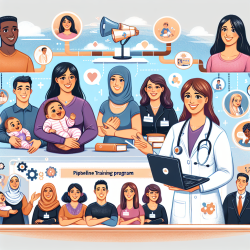Introduction
The provision of services to persons with disabilities in low- and middle-income countries (LMICs) is a complex challenge, exacerbated by limited resources and socio-political instability. The research article titled "Access to Services from Persons with Disabilities in Afghanistan: Is Community Based Rehabilitation Making a Difference?" provides a comprehensive analysis of the impact of Community-Based Rehabilitation (CBR) programs in Afghanistan. This blog aims to distill key findings from the study and offer insights for practitioners seeking to enhance their skills and service delivery.
Key Findings from the Research
The study conducted a large-scale quasi-randomized field experiment involving 1,861 newly recruited CBR participants with disabilities and 1,132 controls. Using propensity score matching and difference-in-difference analysis, the study assessed access to services such as physical therapy, assistive technology, education, employment, advocacy, and community awareness.
Key findings include:
- Statistically significant improvements in access to services for CBR participants compared to controls.
- Increased satisfaction among CBR participants, with reduced unmet needs.
- CBR programs effectively provided services even in conflict contexts, highlighting their potential for broader application in LMICs.
Implications for Practitioners
For practitioners in speech-language pathology and related fields, these findings underscore the importance of data-driven approaches in service delivery. Here are some actionable insights:
- Adopt a Holistic Approach: CBR programs address multiple dimensions of rehabilitation, including health, education, and social inclusion. Practitioners should consider a holistic approach that integrates these elements to enhance outcomes.
- Leverage Community Resources: Engage with local communities and stakeholders to build a supportive network for individuals with disabilities. This can enhance service delivery and foster a more inclusive environment.
- Focus on Early Intervention: The study highlights the benefits of early intervention, particularly for children and youth. Practitioners should prioritize early detection and intervention to maximize long-term outcomes.
- Utilize Evidence-Based Practices: Incorporate evidence-based practices into rehabilitation programs to ensure effectiveness and sustainability. Continuous evaluation and adaptation based on data can lead to improved service delivery.
Encouraging Further Research
The study also highlights gaps in the literature, particularly regarding the evaluation of CBR programs in LMICs. Practitioners are encouraged to engage in further research to explore innovative approaches and methodologies that can enhance the effectiveness of rehabilitation services.
Conclusion
Community-Based Rehabilitation programs have demonstrated their potential to improve access to services and satisfaction among persons with disabilities in Afghanistan. By adopting a data-driven, holistic approach, practitioners can enhance service delivery and contribute to better outcomes for individuals with disabilities. To read the original research paper, please follow this link: Access to Services from Persons with Disabilities in Afghanistan: Is Community Based Rehabilitation Making a Difference?










